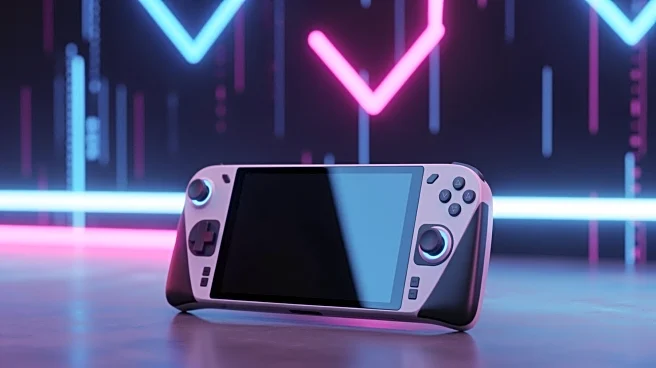What's Happening?
The landscape of handheld gaming consoles has evolved significantly by 2025, with Nintendo maintaining a strong presence through its Switch and Switch 2 models. These devices continue to dominate the market by offering the flexibility of transforming
from home consoles to portable ones. However, the competition has intensified with the introduction of the Steam Deck in 2022, which allowed gamers to access their Steam libraries on the go. This innovation has spurred other industry giants like Asus, Lenovo, and MSI to enter the market, each striving to offer better displays, more powerful processors, and longer battery life at competitive prices. Additionally, Xbox has launched the ROG Xbox Ally X, and Sony has introduced the PlayStation Portal, which offers limited remote play capabilities.
Why It's Important?
The expansion of the handheld gaming console market is significant for both consumers and the gaming industry. For consumers, the increased competition means more choices and potentially better technology at lower prices. For the industry, it represents a shift towards more portable gaming solutions, reflecting changing consumer preferences for gaming on the go. This trend could lead to increased sales and innovation as companies strive to capture market share. The presence of major players like Nintendo, Xbox, and Sony in this space underscores the importance of handheld gaming in the broader gaming ecosystem.
What's Next?
As the market for handheld gaming consoles continues to grow, it is likely that companies will focus on further innovations to differentiate their products. This could include advancements in battery technology, display quality, and processing power. Additionally, the integration of cloud gaming services could become a key feature, allowing players to stream games directly to their devices without the need for extensive local storage. The ongoing competition is expected to drive down prices, making these devices more accessible to a wider audience.
Beyond the Headlines
The rise of handheld gaming consoles also raises questions about the future of traditional home consoles and PC gaming. As more players opt for portable solutions, companies may need to rethink their strategies for these platforms. Furthermore, the environmental impact of producing and disposing of electronic devices could become a more pressing issue, prompting manufacturers to explore sustainable practices.

















